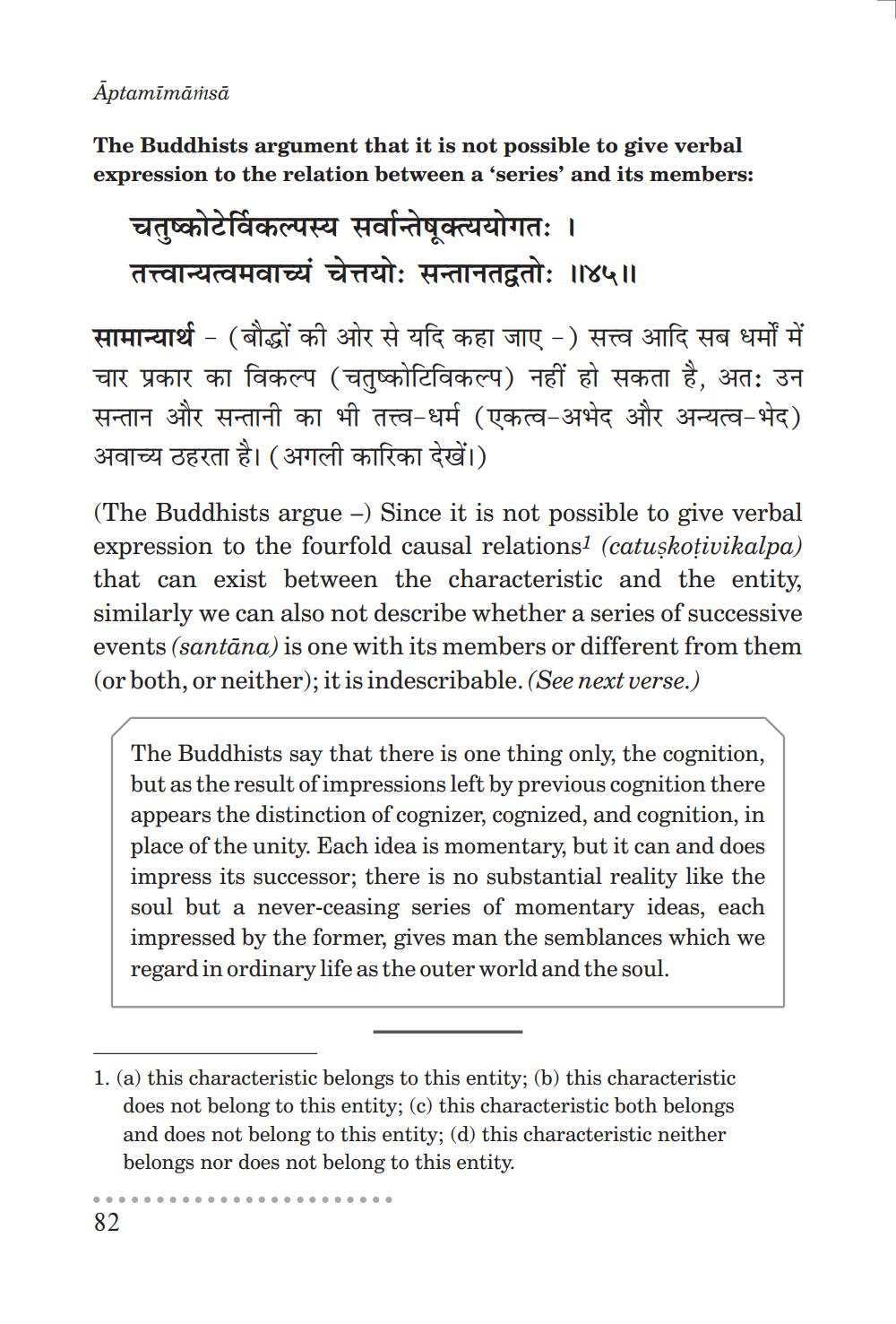________________
Aptamīmāṁsā
The Buddhists argument that it is not possible to give verbal expression to the relation between a 'series' and its members:
चतुष्कोटेर्विकल्पस्य सर्वान्तेषूक्त्ययोगतः ।
तत्त्वान्यत्वमवाच्यं चेत्तयोः सन्तानतद्वतोः ॥४५॥ सामान्यार्थ - (बौद्धों की ओर से यदि कहा जाए - ) सत्त्व आदि सब धर्मों में चार प्रकार का विकल्प (चतुष्कोटिविकल्प) नहीं हो सकता है, अतः उन सन्तान और सन्तानी का भी तत्त्व-धर्म (एकत्व-अभेद और अन्यत्व-भेद) अवाच्य ठहरता है। (अगली कारिका देखें।)
(The Buddhists argue -) Since it is not possible to give verbal expression to the fourfold causal relations! (catuṣkoțivikalpa) that can exist between the characteristic and the entity, similarly we can also not describe whether a series of successive events (santāna) is one with its members or different from them (or both, or neither); it is indescribable. (See next verse.)
The Buddhists say that there is one thing only, the cognition, but as the result of impressions left by previous cognition there appears the distinction of cognizer, cognized, and cognition, in place of the unity. Each idea is momentary, but it can and does impress its successor; there is no substantial reality like the soul but a never-ceasing series of momentary ideas, each impressed by the former, gives man the semblances which we regard in ordinary life as the outer world and the soul.
1. (a) this characteristic belongs to this entity; (b) this characteristic
does not belong to this entity; (c) this characteristic both belongs and does not belong to this entity; (d) this characteristic neither belongs nor does not belong to this entity.
82




